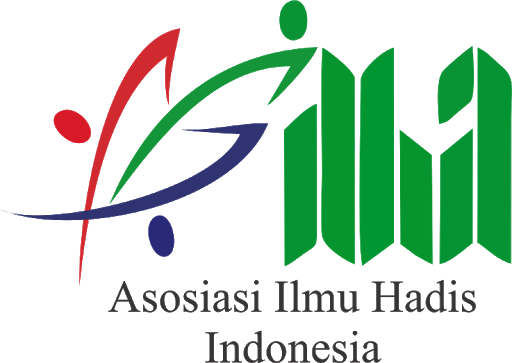Internalization of The Values of The Qur'an and Hadith in Understanding Religious Moderation in Indonesia
Internalisasi Nilai al-Qur’an dan Hadis dalam Memahami Moderasi Beragama di Indonesia
DOI:
https://doi.org/10.14421/livinghadis.2022.4295Abstract
A series of unpleasant incidents emerged with religion as the reason. Such as the destruction of the Christian cemetery (Ngrukem) in Solo, the burning of the Ahmadiyah group's mosque in Sintang, and the expulsion of Catholic students who were praying in their boarding house. This article discusses efforts to minimize intolerant incidents, that one of which is carried out through the idea of moderate Islam (wasathiyah). Researchers used a qualitative approach with literature study (library research) as the main method. As a result, the Islamic values of washatiyyah are an implication of the teachings of "Rahmatan lil'alamin". Religious moderation (Islam washatiyyah) is the key to realizing a society that is not extreme in religion and is able to respect, understand and tolerate each other to create a peaceful and harmonious life between religious communities in Indonesia.
References
Abror, M. (2020). Moderasi Beragama Dalam Bingkai Toleransi. Rusydiah: Jurnal Pemikiran Islam, 1(2), 143-155.
Akhmadi, Agus. MODERASI BERAGAMA DALAM KERAGAMAN INDONESIA RELIGIOUS MODERATION IN INDONESIA’S DIVERSITY. Jurnal Diklat Keagamaan, Vol. 13, no. 2, Pebruari - Maret 2019.
Azra, Azyumardi. Identitas dan Krisis Budaya, Membangun Multikulturalisme Indonesia. 2007.
Bakar, Abu. “Konsep toleransi dan kebebasan beragama.” TOLERANSI: Media Ilmiah Komunikasi Umat Beragama 7.2 (2016): 123-131.
Fahri, M., & Zainuri, A. (2019). “Moderasi beragama di Indonesia”. Intizar, 25(2), 95-100.
Gaos, Cecep. 2020. “Hadis tentang Keseimbangan Hidup di Dunia dan Akhirat”, https://www.cecepgaos.com/2020/08/hadis-tentang-keseimbangan-hidup-di.html, diakses pada 25 Januari 2023 pukul 13.11
Halili. Supremasi Intoleransi, Kondisi Kebebasan Beragama/Berkeyakinan dan Minoritas Keagamaan di Indonesia. Setara Institute, 2016.
Harahap, Ahmad Rivai. “Multikulturalisme dan Penerapannya dalam pemeliharaan kerukunan Umat Beragama”. 2004.
Kymlicka, W. (2002). Kewargaan Multikultural. Jakarta: Penerbit LP3ES, Terjemahan Oleh Edlina Hafmini Eddin.
Hefni, W. (2020). Moderasi beragama dalam ruang digital: Studi pengarusutamaan moderasi beragama di perguruan tinggi keagamaan Islam negeri. Jurnal Bimas Islam, 13(1), 1-22.
Hudaya, Hairul. 2020. “Antara Fisik dan Amal”, //www.uin-antasari.ac.id/antara-fisik-dan-amal/, diakses pada 26 Januari 2023 pukul 14.10
Junaedi, E. (2019). Inilah moderasi beragama perspektif Kemenag. Harmoni, 18(2), 182-186.
Madjid, Nurcholish. Islam Doktrin dan Peradaban, Sebuah Telaah Kritis tentang Keimanan, Kemanusiaan, dan Kemodernan. PT Gramedia Pustaka Utama: Jakarta, 2019.
Mc Guire, Meredith. 1992. Religion: The Social Context, Wadworth. California: Wadsworth Publishing Company
Munir, Abdullah, dkk. LITERASI MODERASI BERAGAMA DI INDONESIA. 2020
Muhamad Qawim, dkk. Moderasi Beragama di Indonesia, Kebangsaan, kebudayaan, dan Keislaman jilid 5. Azkiyah publishing: Jakarta, 2021.
Muqowim, dkk. Moderasi Beragama di Indonesia Upaya Rekontruksi melalui Pendidikan. Azkiyah Publishing: Jakarta, 2020.
Silmi Qurota Ayun Ariadin. (2020). Toleransi Multiagama Dan Multikultural Jadi Tali Pemersatu Bangsa.
Suparlan, Parsudi. Menuju masyarakat Indonesia yang multikultural.” Antropologi Indonesia. 2014
UNESCO. Tolerance: the threshold of peace. A teaching/learning guide for education for peace, human rigths and democracy (Preliminary version). Paris: UNESCO. 1994.
Sutrisno, E. (2019). Aktualisasi Moderasi Beragama di Lembaga Pendidikan. Jurnal Bimas Islam, 12(2), 323-348.
Shihab, M. Q. (2019). Wasathiyyah Wawasan Islam tentang Moderasi Beragama. Lentera Hati Group.
Vogt, Evon Zartman, dan William Armand Lessa. 1972. Reader in Comparative Religion: An Anthropological Approach. London: Harper & Row
Zaenal Abidin As. Menanamkan Konsep Multikulturalisme Di Indonesia. Dinamika Global, Vol. 01, No. 02, Desember 2016.
Downloads
Published
Issue
Section
License
Copyright (c) 2022 Muhammad Mansur, Indal Abror, Mahatva Yoga Adi Pradana, Muhammad Yusup

This work is licensed under a Creative Commons Attribution-ShareAlike 4.0 International License.
- Authors who publish with this journal agree to the following terms:
- Authors retain copyright and grant the journal right of first publication with the work simultaneously licensed under a Creative Commons Attribution License that allows others to share the work with an acknowledgement of the work's authorship and initial publication in this journal.
- Authors are able to enter into separate, additional contractual arrangements for the non-exclusive distribution of the journal's published version of the work (e.g., post it to an institutional repository or publish it in a book), with an acknowledgement of its initial publication in this journal.
- Authors are permitted and encouraged to post their work online (e.g., in institutional repositories or on their website) prior to and during the submission process, as it can lead to productive exchanges, as well as earlier and greater citation of published work.
















